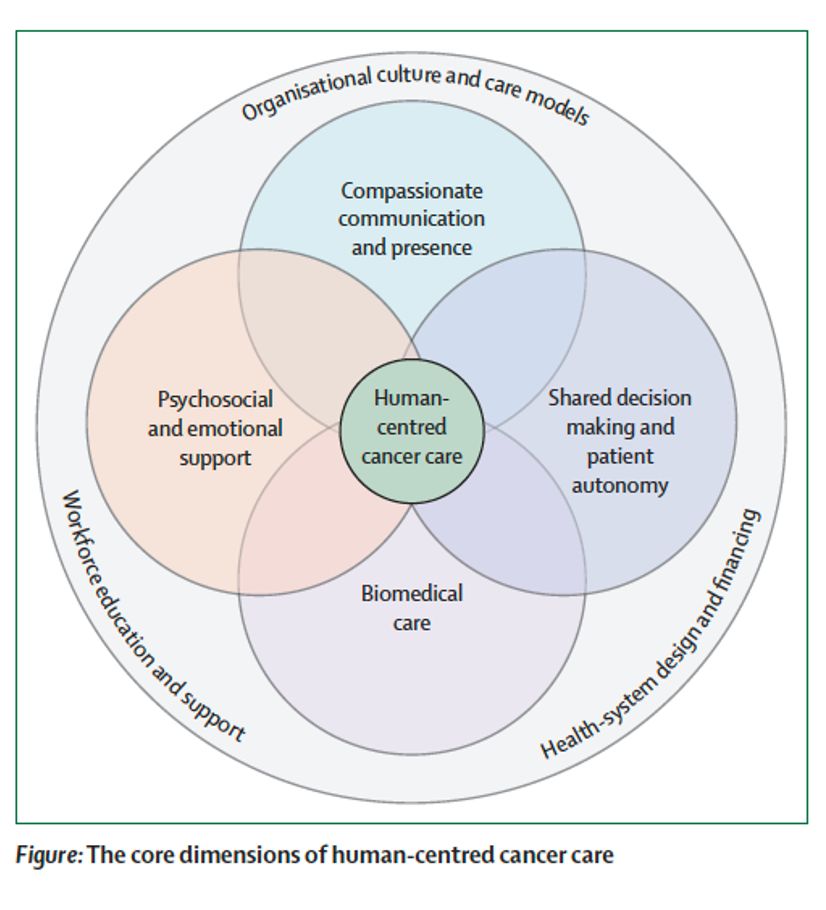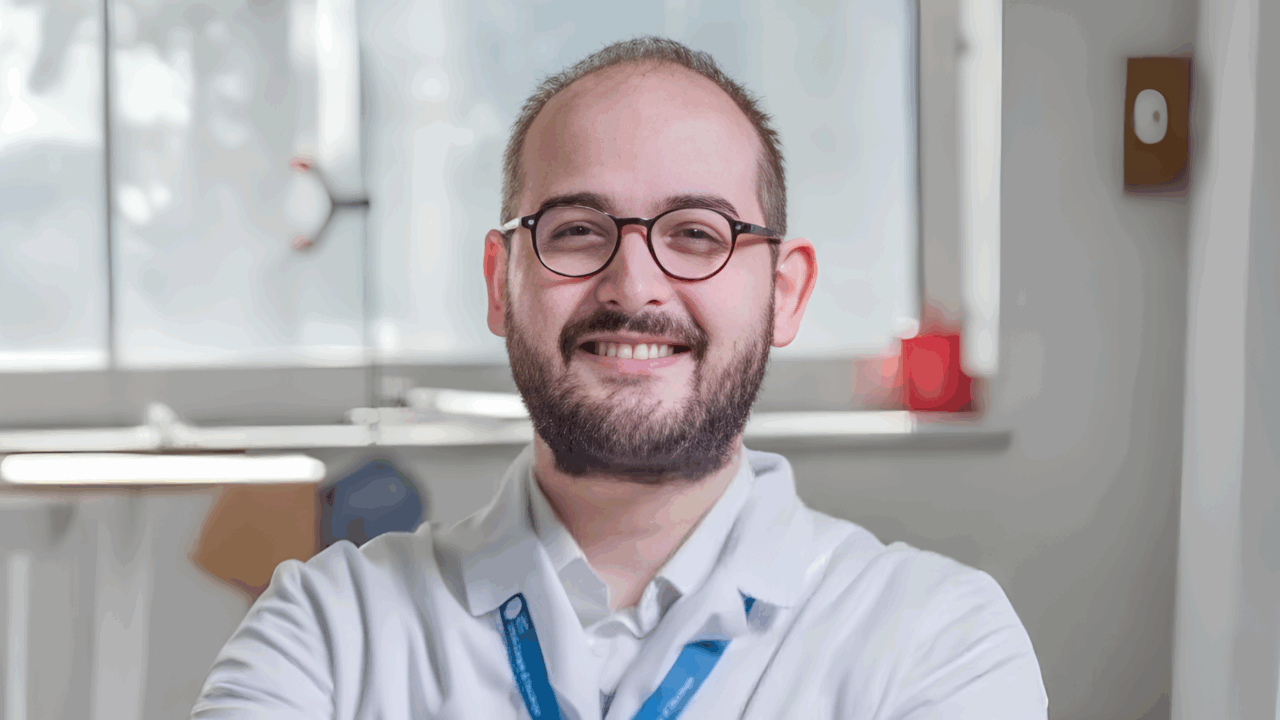Dario Trapani, Medical Oncologist at European Institute of Oncology, shared a post on LinkedIn by Berna Özdemir, Senior Physician at Insel Gruppe, adding:
“It’s Official: The Lancet Group Commission on the Humanization of Cancer Care has just been launched, during the annual meeting of AORTIC in Tunisia!
The Commission launches an urgent appeal to put the human being back at the center of oncology, cancer research and the care system in general.
Key Points of the Report:
- The TRUE meaning of ‘Personalized Care’: The term has often been narrowed down to the sense of molecular targets and ‘targeted’ drugs. We need to return to an approach that embraces the person’s goals, fears, social role, sex/gender and daily routines, for treatments that are truly personalized and built around a shared therapeutic decision approach.
- Research Priority: The report reveals a vastly unbalanced distribution of resources in oncology: 73.5% of public and philanthropic investments go to (pre)clinical studies aimed at pharmacotherapy, while less than 2% supports research in Psycho-oncology and Palliative Care. We need to fund more research that improves the quality of life and in general the genesis of systems that embrace the oncological experience and the individual in the system.
- Global Dehumanization: Both in high-income countries (where the speed and complexity of the path leave little room for dialogue) and in those in economic transition (where services are lacking and access is difficult), the feeling of not being seen is similar and deep.
- Financial and time Toxicity: We cannot ignore the burden of ‘Financial Toxicity’ (the devastating economic impact) and ‘Time Toxicity’ (hours lost in travel, waiting and managing side effects). These factors must be an integral part of the discussion of the treatment decision.
Promoting a cancer treatment system means supporting the person living with cancer in all its complexity.
The Commission urges us to make communication, empathy and psychosocial support core competencies!
Read the full report and join the conversation for a more humane and integrated oncology!”
Quoting Berna Özdemir’s post:
“The Lancet Oncology Commission on the human crisis in cancer care was just released, and I strongly recommend it to everyone involved in cancer care. A few points discussed in the report, that I found particularly important:
- ՛Personalised՛ used to mean care that fit a person’s goals, fears, roles, culture, and daily routines. Today, the term is often linked to targeted drugs and tumour markers. This progress is valuable, but we also need to consider sex and gender in drug development and testing, communication, and access to care to truly personalize treatments.
- Where philanthropic and public research money goes․ The report cites that 73.5% of public and charitable investment in cancer research goes to preclinical studies, 12.1% to clinical research, and only 0.5% to global health research. Less than 2% supports psycho-oncology and palliative care research (MacIntosh SA et al., Lancet Oncology 2023)! Research that can affect many lives, eg. by improving the risk/benefit balance of known drugs, improving access to palliative care, surgery, radiotherapy deserves certainly more funding.
- How dehumanization looks in different places․ In high-income settings, care often moves fast, with complex pathways and little time for meaningful conversation. In low-income settings, challenges include missing services, late diagnosis, and long travel. The context is different, but the feeling of being unseen can be similar.
- Financial toxicity and time toxicity․ Financial strain affects work, savings, housing, and family life. Time toxicity is also important: the hours spent traveling, waiting, and managing side effects have a real impact on daily life and quality of time. These issues deserve more attention and discussion when making treatment decisions!
What I take from this report is that we must remember to put the human being at the cancer. Cancer care is not only about treating a tumor on a scan or a blood test, it is about supporting the person living with cancer, with all the complexity that brings.
As someone working in a high-income country and committed to equity and global oncology, these reflections feel timely. They are a strong reminder to stay close to the human story behind every clinical decision.
Thanks to all members of the Lancet Commission, Gary Rodin, Dario Trapani, Richard Sullivan, Rille Pihlak, Elizabeth Smyth.”

More posts featuring Dario Trapani.


